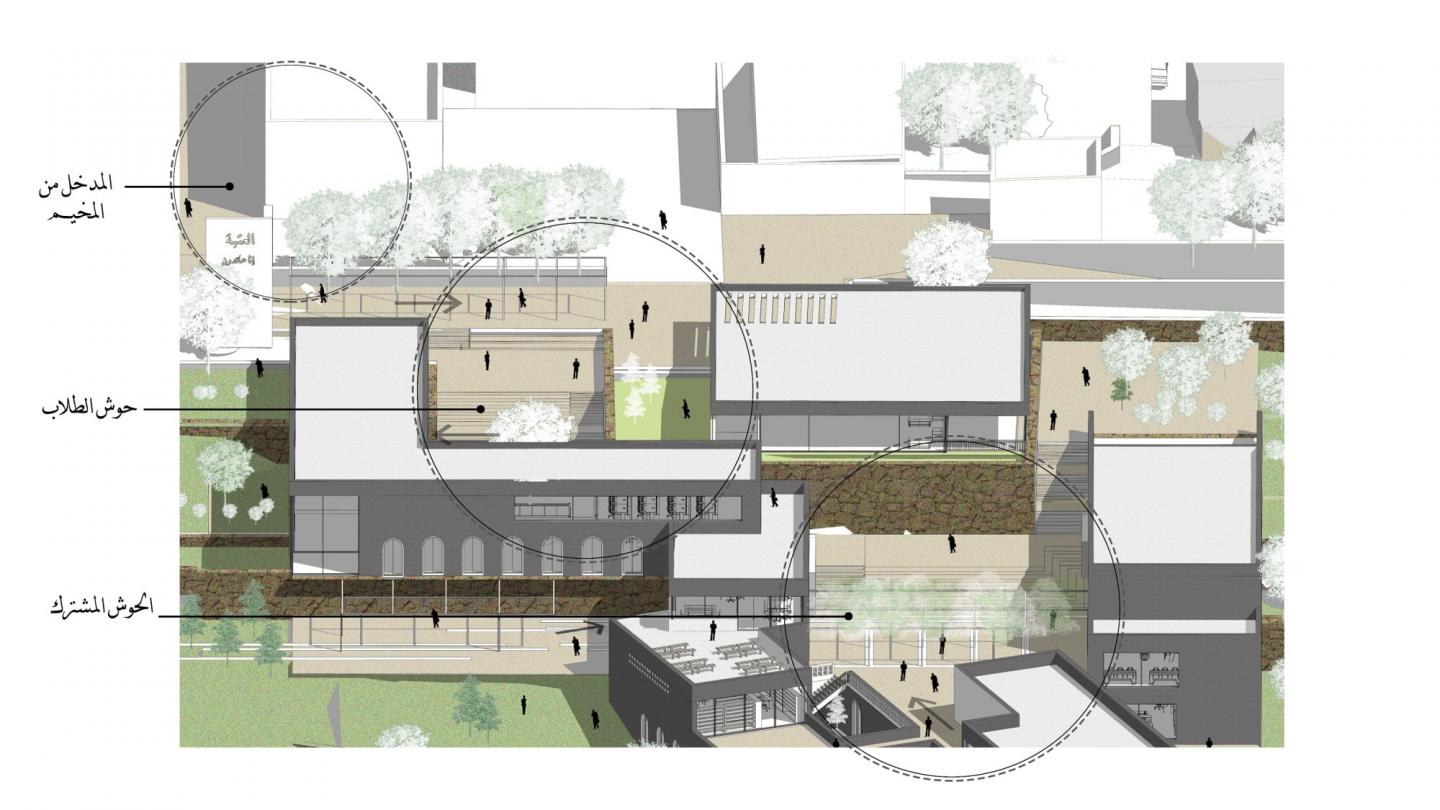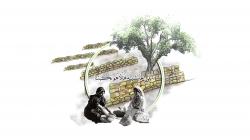After more than seventy years, Palestinian refugee camps in Jordan have exceeded their symbolic and factual role as facilitating environments and symbols of resistance. Palestine refugees today feel further than ever ‘left behind and forgotten. Palestinian refugees camps are generally poor, with high population density, cramped living conditions and inadequate basic infrastructures such as roads and sewers and minimum decent life conditions, without any vital sign radiating in the hope of the right of return, it is only a mass of people in a very small area, which is counting its days waiting for help from this and compassion from that.
Hitteen camp, located between Amman and Zarqa’, being one of the densest camps hosting a large number of ex-Gazans, neighbouring Theodor Schneller school providing academic and vocational training for 265 orphaned and impoverished boys. the vacant area between Schneller school buildings and the camp was the chosen spot to start a project there with the administration of Schneller school and UNRWA.
The link between UNRWA Installations with Schneller school facilities is very important in the project. As some actions were observed of some young people breaking through the wall surrounding the school and shared with the camp covering almost 60 per cent of the boarders, finding a common interest between the two entities will solve so many problems. An Agritech-business Incubator and a Fabrication lab for innovative youth is the proposed project acting as a connection between the conventional teaching methods that Schneller school provides to bridge the gap and move forward to a better decent life and change the community from a consumer to a producer.
The olive tree has become a modern symbol of Palestinian patriotism, bearing the connotation of resilience and survival, and in addition to its economic importance for contemporary Palestinian society, its cultural symbolism has been associated with a long history with a society that witnessed the shrinkage of its historical lands over the course of the twentieth century. With the decline of agriculture and food security, it is important to discover the latest methods and train them to deal with the current conditions and learn from the owners of the craft the importance of agriculture and its secrets.
The main concept is restoring the Hakoura(farm) essence as a core of economic, social and a gathering of resources spot as a first step of escaping limbo, realizing and acting upon this project is a cumulative, complementary, economic, social, and political project that fundamentally seeks to liberate refugees from dependency and uncertainty. Philosophically, the concept of a "resistance economy" is a process that sets out to emancipate human beings by freeing them from poverty, inequality, unemployment, empowering them to cultivate their lands, and expanding their options, capabilities, and potentials to ensure their happiness. The design aims to maintain the strong local identity and values of both the school and the refugees camp sides, consisting of a series of elevated terraces and courtyards, connected with the farms along with the project, providing a sense of openness, community, creativity and innovation throughout the campus with the use of familiar elements such as the narrow alleyways, stairs, the grapevines, olive trees and arcades, forming a homey atmosphere in a contemporary feeling of the Palestinian villages. the courtyards will work individually and together, according to the use of each of them and the student's age group, in the same time, every two courtyards are connected to ensure the share of experience and knowledge between the different groups, the project is connected with a bridge crossing the existing olive farm, the bridge contains terraces and shading pergolas with some popular sayings written on each station
Make farming a remunerative economic activity by strengthening farmer’s effort, risk mitigation and promoting agribusiness entrepreneurship. technology and infrastructure will be provided to youth and entrepreneurs for start-ups in different areas of agriculture and technology. The Agri-Business and technology Incubator and Fablab focus on innovations, skill-building and entrepreneur’s development in agriculture and allied sectors Access to office space, and infrastructure (including meeting and training rooms, processing equipment and plants, labs), research and technology services, advisory and business development services, training, networking with the business community and financial institutions, facilitated access to promotional programs such as credit programs at the subsidized interest rate. The centre will be equipped with internet-enabled equipment, 3D printers, laser cutting tables, drones and devices used to build IoT equipment will be added and users will be able to develop prototypes.
2021
.
Raghad Ziyadeh





